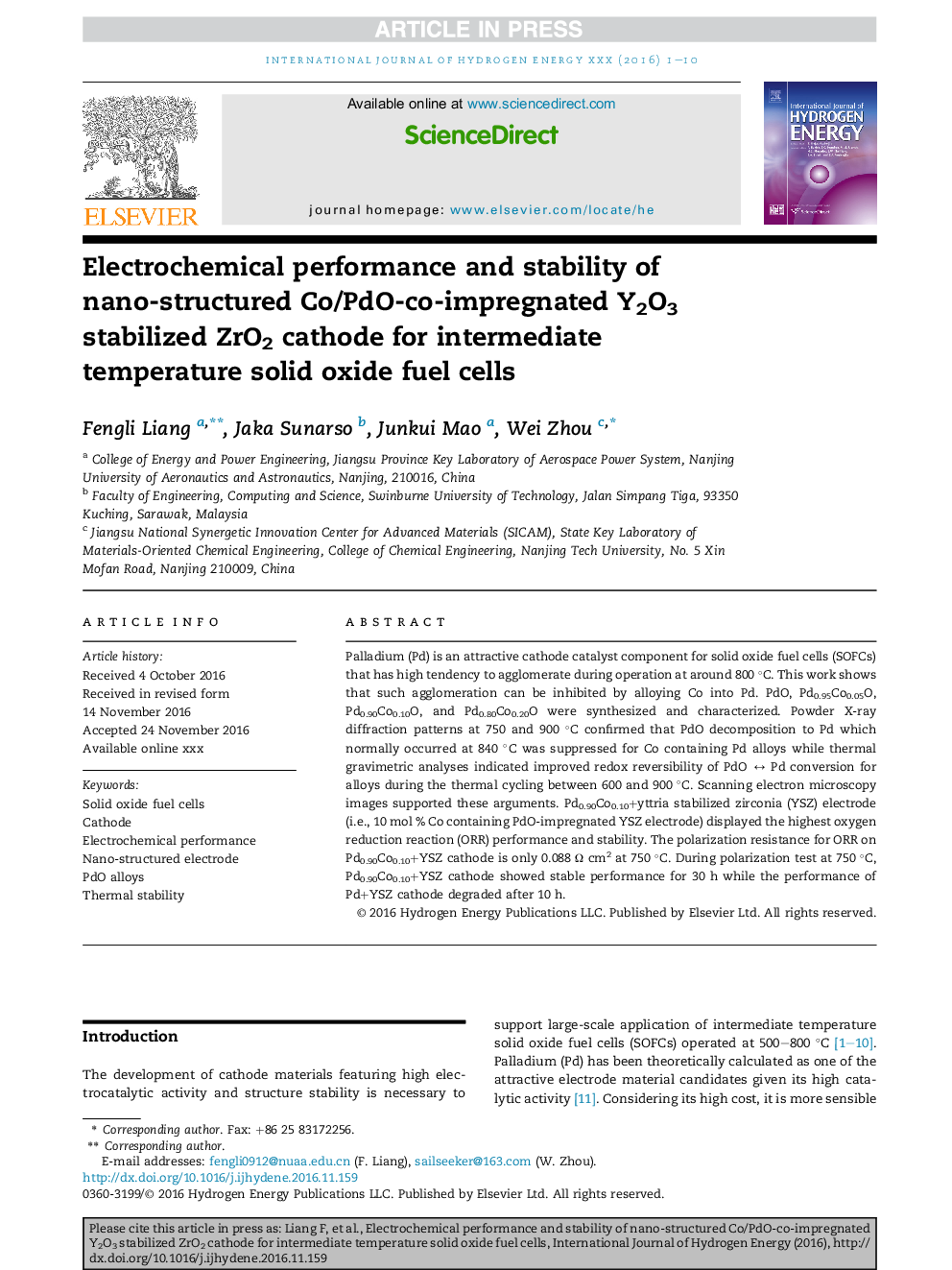| Article ID | Journal | Published Year | Pages | File Type |
|---|---|---|---|---|
| 5146136 | International Journal of Hydrogen Energy | 2017 | 10 Pages |
Abstract
Palladium (Pd) is an attractive cathode catalyst component for solid oxide fuel cells (SOFCs) that has high tendency to agglomerate during operation at around 800 °C. This work shows that such agglomeration can be inhibited by alloying Co into Pd. PdO, Pd0.95Co0.05O, Pd0.90Co0.10O, and Pd0.80Co0.20O were synthesized and characterized. Powder X-ray diffraction patterns at 750 and 900 °C confirmed that PdO decomposition to Pd which normally occurred at 840 °C was suppressed for Co containing Pd alloys while thermal gravimetric analyses indicated improved redox reversibility of PdO â Pd conversion for alloys during the thermal cycling between 600 and 900 °C. Scanning electron microscopy images supported these arguments. Pd0.90Co0.10+yttria stabilized zirconia (YSZ) electrode (i.e., 10 mol % Co containing PdO-impregnated YSZ electrode) displayed the highest oxygen reduction reaction (ORR) performance and stability. The polarization resistance for ORR on Pd0.90Co0.10+YSZ cathode is only 0.088 Ω cm2 at 750 °C. During polarization test at 750 °C, Pd0.90Co0.10+YSZ cathode showed stable performance for 30 h while the performance of Pd+YSZ cathode degraded after 10 h.
Keywords
Related Topics
Physical Sciences and Engineering
Chemistry
Electrochemistry
Authors
Fengli Liang, Jaka Sunarso, Junkui Mao, Wei Zhou,
